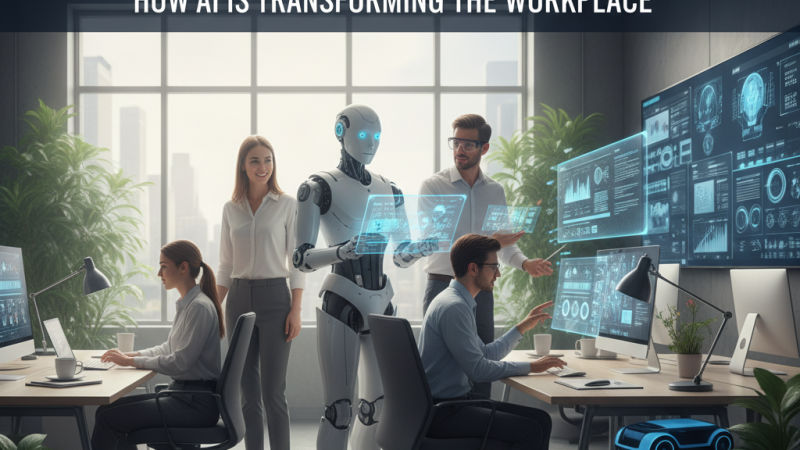Introduction: A New Era of Work and Learning
The way we work has changed forever. The rise of remote jobs has redefined not only where we work but also how we grow as professionals. In the past, employees relied future of remote employees on office-based mentorship and structured training programs. Today, remote employees must drive their own development, and that’s where continuous learning becomes a game-changer.
In a world driven by automation, artificial intelligence, and global collaboration, staying relevant means constantly evolving your skills. Continuous learning has become the backbone of success for remote professionals who want to remain competitive in an ever-changing job market. Whether it’s learning new tools, understanding cultural communication, or adapting to emerging technologies, continuous learning defines the future of remote employees more than ever before.
In this article, we’ll explore how lifelong learning empowers remote workers to stay agile, productive, and future-ready. You’ll discover why continuous learning is not just an option but a necessity, and how companies can support their teams in building a sustainable, growth-oriented work culture.
The Rise of Remote Work and the Demand for Lifelong Learners
The Shift from Routine to Adaptability
Remote work has transitioned from a temporary fix to a permanent fixture in global employment. But as work environments become more flexible, job expectations are becoming more dynamic. Employees are now expected to learn, unlearn, and relearn at a much faster pace than before. The ability to adapt quickly to new tools or platforms is no longer a bonus; it’s a baseline requirement.
This shift is transforming how companies view their teams. Organizations now prioritize candidates who show curiosity and a willingness to grow. A remote employee who can self-learn and update their skills becomes a valuable long-term asset. Unlike traditional office setups, where learning often occurred passively, remote environments demand self-driven growth.
A Global Talent Market Needs Global Skills
Since companies can now hire talent from anywhere, competition for remote roles has become fierce. To stand out, professionals must demonstrate continuous skill improvement. This includes mastering new digital collaboration tools, staying updated with cybersecurity protocols, and developing cross-cultural communication skills.
For example, a digital marketer today might need to learn AI-driven analytics tools, while a remote project manager must stay updated on agile methodologies and time-zone coordination tools. Those who continuously learn and adapt become the ones leading the remote work revolution.
Why Continuous Learning Is the New Remote Work Currency
Skills Expire Faster Than Ever
In the digital age, knowledge depreciates quickly. Tools that were relevant two years ago may already be outdated. Remote employees who rely on past skills risk falling behind. Continuous learning ensures they remain competitive by upgrading their expertise in real-time.
For instance, tech professionals working remotely need to keep pace with emerging programming frameworks or cybersecurity updates. Similarly, content creators and marketers must stay aligned with changing algorithms and consumer behaviors. Continuous learning helps remote employees future-proof their careers against obsolescence.
Building Confidence and Independence
Working remotely often means fewer in-person mentoring opportunities. Continuous learning fills this gap by allowing professionals to gain confidence in their problem-solving abilities. When remote workers upskill independently through online courses, webinars, or peer learning, they gain autonomy and self-assurance.
This independence also strengthens future of remote employees productivity. Instead of waiting for solutions, self-learners proactively find ways to improve workflows or solve technical issues. Over time, this creates a stronger, more capable remote workforce that thrives without constant supervision.
How Technology Enables Continuous Learning for Remote Workers
E-Learning Platforms and Microlearning
The rise of e-learning has revolutionized how remote employees learn. Platforms like Coursera, Udemy, and LinkedIn Learning make education accessible from anywhere. Remote professionals can now learn new skills during short breaks or between projects, without leaving their desks.
Microlearning, the practice of consuming small, focused lessons, fits perfectly into the remote lifestyle. Instead of long training sessions, professionals can take 10-minute modules daily. This steady learning approach keeps skills sharp and motivation high.
AI and Personalized Learning Paths
Artificial intelligence is now reshaping professional learning. AI-powered systems recommend personalized learning paths based future of remote employees on an individual’s goals and performance. For example, a designer might receive tailored recommendations to improve UX design or learn new prototyping tools.
These intelligent systems analyze behavior, track progress, and even suggest job-specific certifications. As a result, continuous learning becomes more efficient, goal-oriented, and directly tied to career growth.
Collaboration and Peer Learning in Virtual Spaces
Remote work tools like Slack, Microsoft Teams, and Notion have evolved into more than communication platforms; they’re hubs of collaboration and shared future of remote employees learning. Teams can exchange resources, host virtual workshops, or create internal learning communities.
This peer-to-peer exchange strengthens both technical knowledge and interpersonal skills, creating a more engaged and capable remote workforce. Continuous learning, in this context, becomes a social experience rather than an isolated task.
The Benefits of Continuous Learning for Remote Employees and Companies
For Employees: Growth, Confidence, and Job Security
Continuous learning helps remote employees stay ahead of the curve. The more skills they develop, the more versatile and resilient they become. A software engineer who learns project management or an HR executive who explores data analytics opens multiple career paths.
This growth not only enhances employability but also builds confidence. Remote workers feel more secure knowing they can adapt to new challenges or pivot roles when needed. In a fast-changing world, that adaptability is priceless.
For Companies: A Smarter, More Agile Workforce
For employers, encouraging continuous learning brings measurable business benefits. Companies with upskilled remote teams experience fewer future of remote employees skill gaps, faster problem-solving, and higher innovation rates. Employees who learn continuously are also more engaged and loyal.
Investing in learning programs such as virtual training budgets, certification sponsorships, or mentorship circles signals that the company values employee development. This culture of growth improves retention and strengthens the employer brand in a competitive global talent market.
A Culture of Lifelong Learning Builds Trust
When organizations encourage learning, they send a message: “We believe in your growth.” This fosters trust and motivation among remote teams. Employees are more likely to invest effort into a company that invests in them. Over time, this mutual commitment leads to stronger collaboration, innovation, and long-term success.
How to Build a Continuous Learning Mindset as a Remote Professional
Set Learning Goals Aligned with Career Growth
Continuous learning works best when it’s purposeful. Remote professionals should define what skills align with their long-term goals. For example, a content writer might aim to learn SEO analytics or brand storytelling, while a remote developer may explore blockchain or AI integration.
Make Learning Part of Your Routine
Consistency beats intensity. Dedicate 30 minutes a day to learning something new, whether through podcasts, short videos, or reading industry blogs. Over time, this small investment compounds into significant career growth.
Leverage Online Communities and Mentorship
Join online communities on LinkedIn, Reddit, or Slack channels related to your field. Engaging in discussions, sharing experiences, and seeking mentorship can offer insights beyond traditional courses. These connections also expose remote workers to global perspectives and job opportunities.
Celebrate Small Wins
Learning can feel endless, especially in fast-moving industries. Recognize progress in finishing a course, mastering a new tool, or applying a new strategy successfully. Celebrating these milestones keeps motivation high and makes learning enjoyable.
Conclusion
The future of remote employees is deeply connected to the commitment to learn continuously. In an age where technologies evolve rapidly, adaptability becomes the ultimate skill. Continuous learning ensures that remote professionals not only stay employable but also thrive in their chosen careers.
For businesses, fostering this learning culture leads to innovation, loyalty, and long-term growth. As digital tools continue to reshape industries, those who invest in learning will lead the next generation of remote work smarter, faster, and more connected than ever before.
In essence, continuous learning doesn’t just define the future of remote employees, it defines the future of work itself.
Find Remote Jobs Faster with AI Support on Wiraa. Explore flexible remote jobs and global work opportunities with trusted companies that value your skills.




